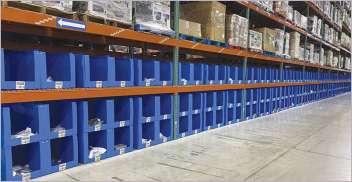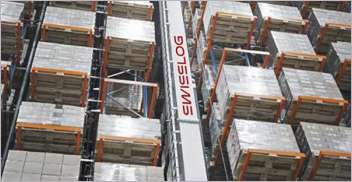Less than half (45.6%) of warehouse and logistics leaders see automation as necessary over the next five years, according to new research from ProGlove. The discovery from the wearable tech pioneer comes as nearly two-thirds have either already implemented or are currently implementing automation. However, ProGlove concluded, it is yet another piece of evidence that full automation is not a cure-all for the industry’s challenges.
The research polled over 1,000 Managers, Directors & C-Suite warehouse and logistics professionals across the US, UK, Germany, Italy, Spain, France, and the Nordics. It found that just over a third (36.1%) are currently deploying warehouse automation technology. Only 16.3% successfully introduced warehouse automation within the last two years, showing the early stages of increasing adoption. An additional 30% say they are currently undertaking automation projects.
However, over a third (36.9%) are not currently utilizing automation, ProGlove's research found. The remaining 27% are considering implementing the technology. Therefore, it is unlikely that automation will completely replace human workers any time soon, ProGlove added.
Barriers to implementation
In the face of global supply chain challenges and difficulty filling vacancies, for some, automation offers an opportunity to keep up with rising demand. Despite this, many leaders face issues with implementing the technology. When asked about barriers to implementation within their organizations, the leading issue facing 28.3% of leaders is a lack of automation expertise to carry out projects. Almost a quarter (24.5%) noted integration difficulties in their current warehouse environment. In addition, 22% struggle with internal resistance, 21% said support and maintenance is an insurmountable issue, and 22% don’t have time to train people. Finally, 18% claim automation is too complicated to implement across the business. In total, only a fifth of respondents said they had no organizational barriers to automation implementation.
“For many organizations, automation will be a necessary step to improve productivity, but it is not a silver bullet.” said Stefan Lampa, robotics pioneer and CEO of ProGlove, “This research highlights serious blockers preventing many leaders from rolling out the technology. In any case, it must be implemented to address the specific needs of each individual business, rather than automation for its own sake.”
The research points to uncertainty with implementing fully autonomous technology. 40.6% of respondents have yet to attempt to introduce automation, while 11.8% have delayed projects. In fact, more leaders are certain of investments in semi or partially-automated systems (47.4%), AI (48.4%), and industry wearables (41.9%) than full automation (31.6%).
Stefan Lampa continued: “‘CollaboMation,’ or ‘collaborative automation,’ is an option many organizations are looking into. For some operations, full automation simply isn’t the right fit in the shorter term. Instead, they are focusing on technologies that center around and augment the capabilities of the human worker.”
Founded in 2014, ProGlove provides smart wearable scanner solutions. More than 2,000 global industrial customers trust in ProGlove’s products.








